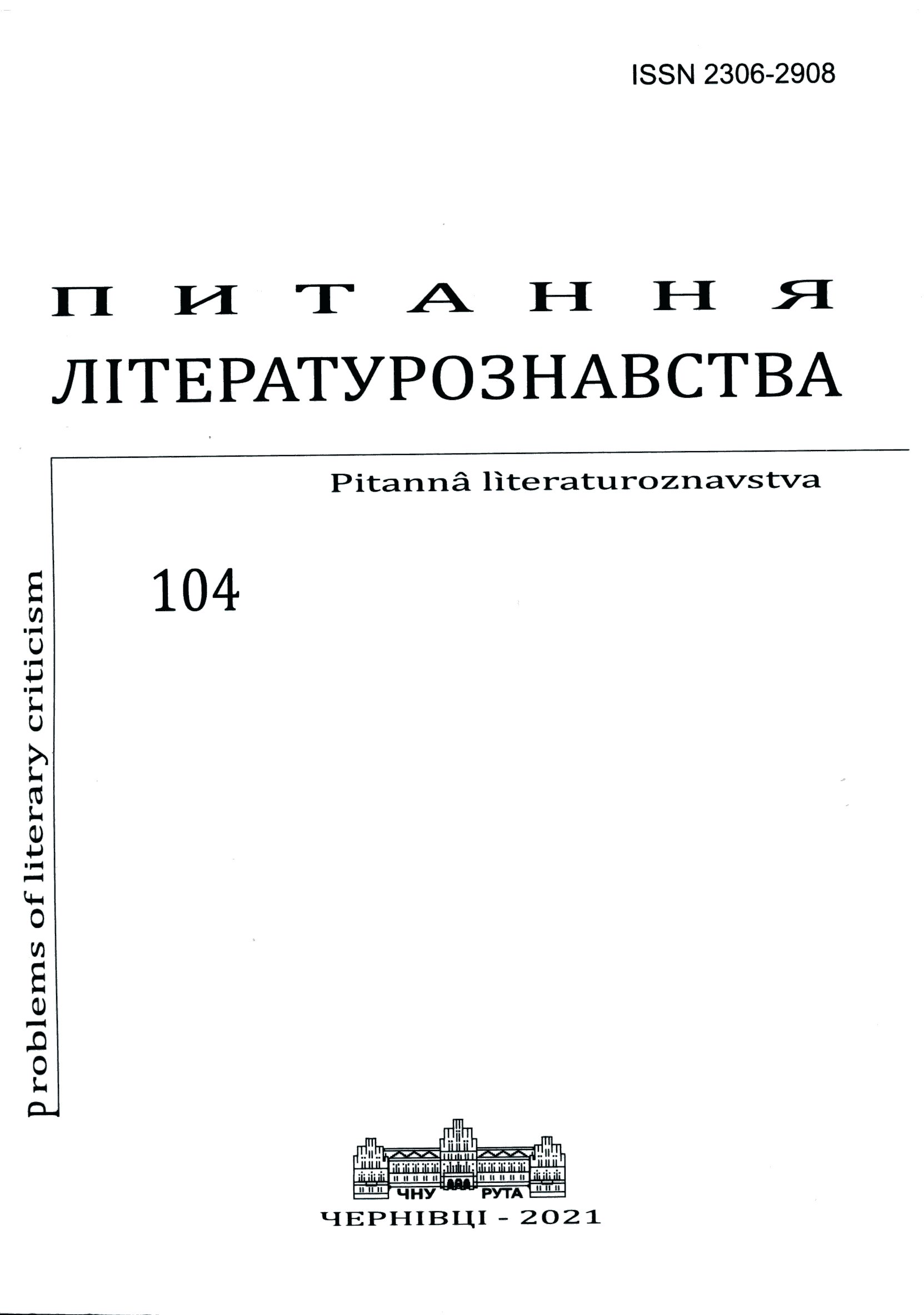Поетизація буденного у творчості Вільгельма Ґенацино
Poetizing Everyday Life in the Works by Wilhelm Genazino
Author(s): Svitlana MacenkaSubject(s): Language and Literature Studies, Studies of Literature, German Literature
Published by: Чернівецький національний університет імені Юрія Федьковича
Keywords: poetics; poetization; everyday life; clothes; extended gaze; novel; Wilhelm Genazino;
Summary/Abstract: Increased interest in everyday life and routine explains a new and relevant perception of the creative agenda of contemporary German writer Wilhelm Genazino (1943-2018), known as “poetizing everyday life”. The article, thus, aims to offer a comprehensive view into the poetics of the German novelist to identify ways in which everyday life is poetized, which is an example of linguistic mastery, narrative skill, and philosophical generalization. A close reading method is used to analyze specific scenes from the novels (An Umbrella for One Day, Happiness in Unhappy Times, The Foolishness of Love, If We Were Animals), in which the characters actively practice the “extended gaze”, theoretically validated in W. Genazino’s essay, to reveal a system of special ties important to their inner world behind the routine situations and worn clothes. The writer believes that in such a way, characters experience an epiphany, which provokes further musing about art and the mystery of everyday life. In this connection, it is established that Genazino’s characters manage to avoid the negative influences of society by distancing from it via self-invented aesthetic processes. They are constantly searching for individual vision. It is also noted that the writer focuses on prolonged disappearance scenes, works with time accumulated in objects, and projects distancing from one’s own self to clothes. The extended gaze which the protagonists use to watch their own portrayals helps them overcome identity crisis and generate art, which promises salvation, through simple observance. It is concluded that W. Genazino talks about the aesthetic link between the subject and object perceived as individual “cultural significance”. It enables the protagonists to discard the routine and enter a space outside the limits they have themselves created. Everyday objects and familiar situations have the capacity to stimulate memories and boost creative perception. Their fleeting nature provides for compensatory narration, which means dropping the inessential and petty and is, consequently, perceived as a productive narration. Everyday reality emerges as something that may be perceived as visible existence, which upon some consideration may reveal unique dimensions and gain particular significance based on intermediary space between what is perceived by the eye and the invisible, actualized by the inner vision. Such reflexive vision transcends the limits of things, transforming them and constituting new reality. Such is the underlying principle that the writer used to recreate everyday life in his works.
Journal: Питання літературознавства
- Issue Year: 2021
- Issue No: 104
- Page Range: 108-125
- Page Count: 18
- Language: Ukrainian

